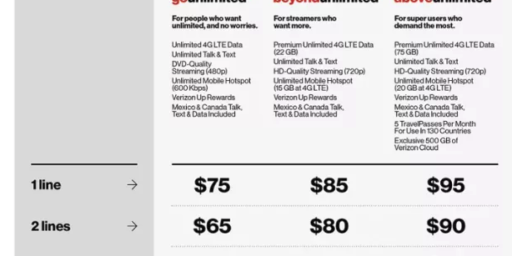$50 For Unlimited Music Downloads
Eliot Van Buskirk reports that one knowledgeable source has estimated that an annual fee of $50 per music lover would allow record labels to remain profitable while allowing unlimited downloads.
At a SXSW panel called “Reinventing Payment Models for Digital Music,” Cambridge-educated economist-turned-music-manager (Pink Floyd, The Clash, Ian Dury And The Blockheads, Billy Bragg) Peter Jenner put a figure on how much each music fan who buys music would have to pay in order for access to every song ever recorded while maintaining or increasing music sales.
He said that $50 per year from every person who listens to music would “meet or exceed the current over the counter sales of the music industry at a far lower cost,” but that because of deeply-entrenched flaws in the outmoded business models used by the labels that have evolved over the years, we’re unlikely ever to see such a system put in place — despite the fact that it would increase profits while allowing people far greater access to music.
While I’d certainly be willing to pony up $4.17 a month for unlimited downloads, there’s one rather obvious flaw in this model: Incentive. Why would record companies spend a lot of money on A&R if they’re getting a fixed cash flow?






I notice it says per music lover, not per household.
Good point. I’m sure most households would limit themselves to a single music lover, however.
I would think so too, but I’m not sure that is what the proposed cost model is based upon. For me this could mean $150 to $200 year (depending who is staying at home at the time). Based on this not being a actual offering at this point, I would think the model is based on each individual that might listen to music and not on an actual household, (i.e. point of service). If I’m wrong then the $50 per year would seem reasonable.
Given the utter crap they’ve been coming up with for the last 20 years or so, in the current model, do you really think music quality will suffer?
It’s like buying Amalgamated Buggy Whips… the stock can’t do anything but go up.
Ah. Do record labels spend a lot of money on artists and repertoire? How do their budgets in this area vary with revenues? With net revenues?
There are lots and lots of industries that have been made obsolete by technology. Relatively few have been as successful at self-preservation through rent-seeking as has the recording industry.
I think it’s perfectly reasonable to ask if they deserve to live while deciding whether to keep the oxygen tank connected or not.
Why would the music industry be willing to try new ideas? Because the profit margin is falling like a rock, year by year, using the old business model.
As far as the $50/month goes, I suspect the actual cost per subscription would be more like around $150/year or more, since any subscription will be used by more than one listener.
Quite a bit of the older stuff is free, due to user licenses sold by some recording companies to sites like You Tube. (Some of the content is still pirated, but Google & You Tube are pulling titles not covered by these agreements.) This trend may more likely be the “next business model”, provided it works well for the companies who try this.